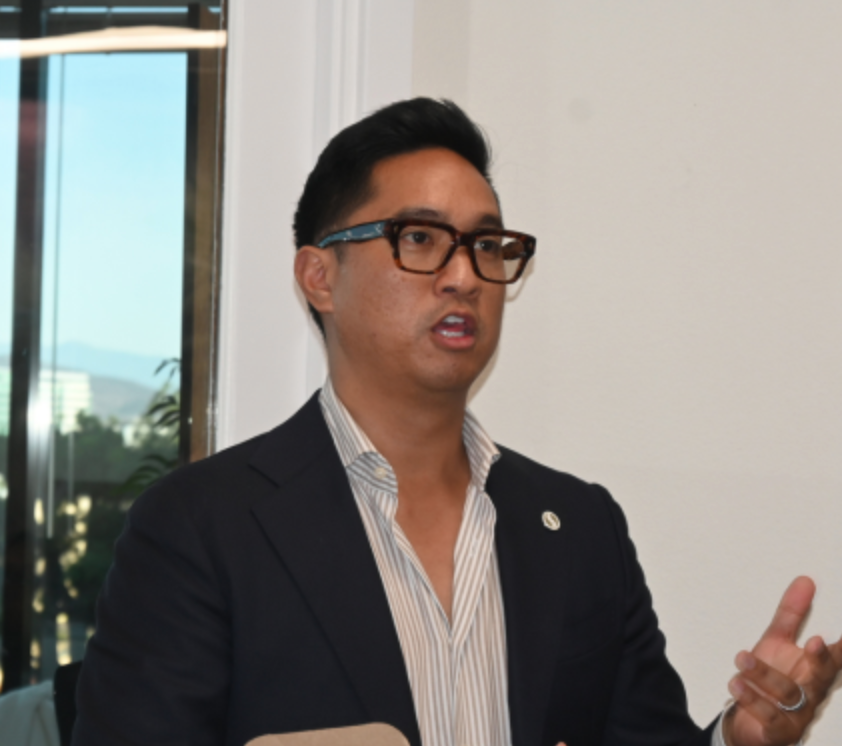Community leaders join forces with ethnic media to combat hate crimes
SAN DIEGO – Leaders of several community-based organizations met with local ethnic media outlets here earlier this month to join forces in combating hate crimes and incidents in this region.
“Community-based organizations are the right hand, and ethnic media outlets are the left hand. We must work together to confront hate,” said Ethnic Media Services co-director Julian Do, kicking off the gathering. EMS and Catalyst of San Diego and Imperial Counties organized the meet, which was held at the office of the Asian Business Association San Diego. The 40-plus participants were recipients of grants from the State of California’s Stop the Hate initiative.
The San Diego meeting is the first of five regional meetings EMS will host for CBOs and ethnic media Stop the Hate grantees to build inclusive communications.
In 2022, 105 hate crimes involving 125 victims were reported in San Diego County, according to data from the US Justice Department. Imperial County reported four hate crimes.
Hate crimes are undercounted
The largest number of hate crimes in California last year targeted Black Americans, according to DOJ data. Black Americans were the victims in 743 cases. The second-highest number of hate crimes in California targeted Latinos: 265. Asian Americans were the victims in 116 incidents. Community leaders say the DOJ’s hate crime data has consistently represented an undercount: law enforcement and District Attorneys’ offices are often reluctant to charge hate crimes, as the burden of proof is much higher.
Meanwhile, communities of color are reluctant to engage with law enforcement because of language barriers and possible ramifications for themselves, said ABA San Diego President and CEO Jason Paguio, who also serves on the California Commission on Asian and Pacific Islanders American Affairs.

Jason Paguio, president and CEO of the Asian Business Association of San Diego, also serves on the California Commission on Asian and Pacific Islanders American Affairs. Photo from Sunita Sohrabji
Reluctance to report
En route to the Dec. 14 meeting, an Uber driver told EMS that last month, he was pushed to the ground while on an evening walk in his neighborhood. His attacker yelled: “you don’t belong here” as he kicked his victim.
Asked if he had reported the attack to police, the Hispanic driver said no. “I go to police, they start asking me questions and all of a sudden, I’m the one going to jail,” he ruefully quipped.
Hector Felix, publisher and editor of El Informador, says the culture of machismo doesn’t allow Hispanic men to report hate crimes, due to perceptions of being weak. He noted that there are also fears of deportation in any interaction with police.
Rosy Tang of the Karen Center of San Diego, said: “People don’t understand when they have experienced a hate crime. Our community is relatively new.”
The Karens are a minority group of Myanmar who have been battling for a separate state. Many have fled the country, living for many years in refugee camps in Thailand or India before arriving in the US.
Integration is difficult
Pamela Anchung, editor in chief of Immigrant magazine, said her publication is trying to put a face to the African immigrant experience. Integration is difficult: many face language barriers, among other hurdles.
Rachel Evans of Somali Family Services, San Diego echoed Anchung’s remarks, noting that getting housing, capital to start a business or even an employer identification number is challenging for newcomers. The Middle East North African population is counted as White in Census records. “It is challenging to advocate for resources for a community that isn’t even recognized,” she said. Somali Family Services also works with refugees from Afghanistan.
Many of the grantees are now concentrating on school bullying, a major component of hate-motivated crime and incidents. Several organizations spoke about the work they are doing with youth, characterized as the “bridge generation” in combatting hate.
EMS Executive Director Sandy Close closed out the meeting. “To combat hate, we need inclusive, cross-ethnic, inter-ethnic communications between ethnic media and nonprofit community groups. We need each other to ensure no hate crime goes unreported, no target of hate is invisible, and that all communities have a way to communicate with one another, and amplify their voices to each other,” she said. (Ethnic Media Services)

